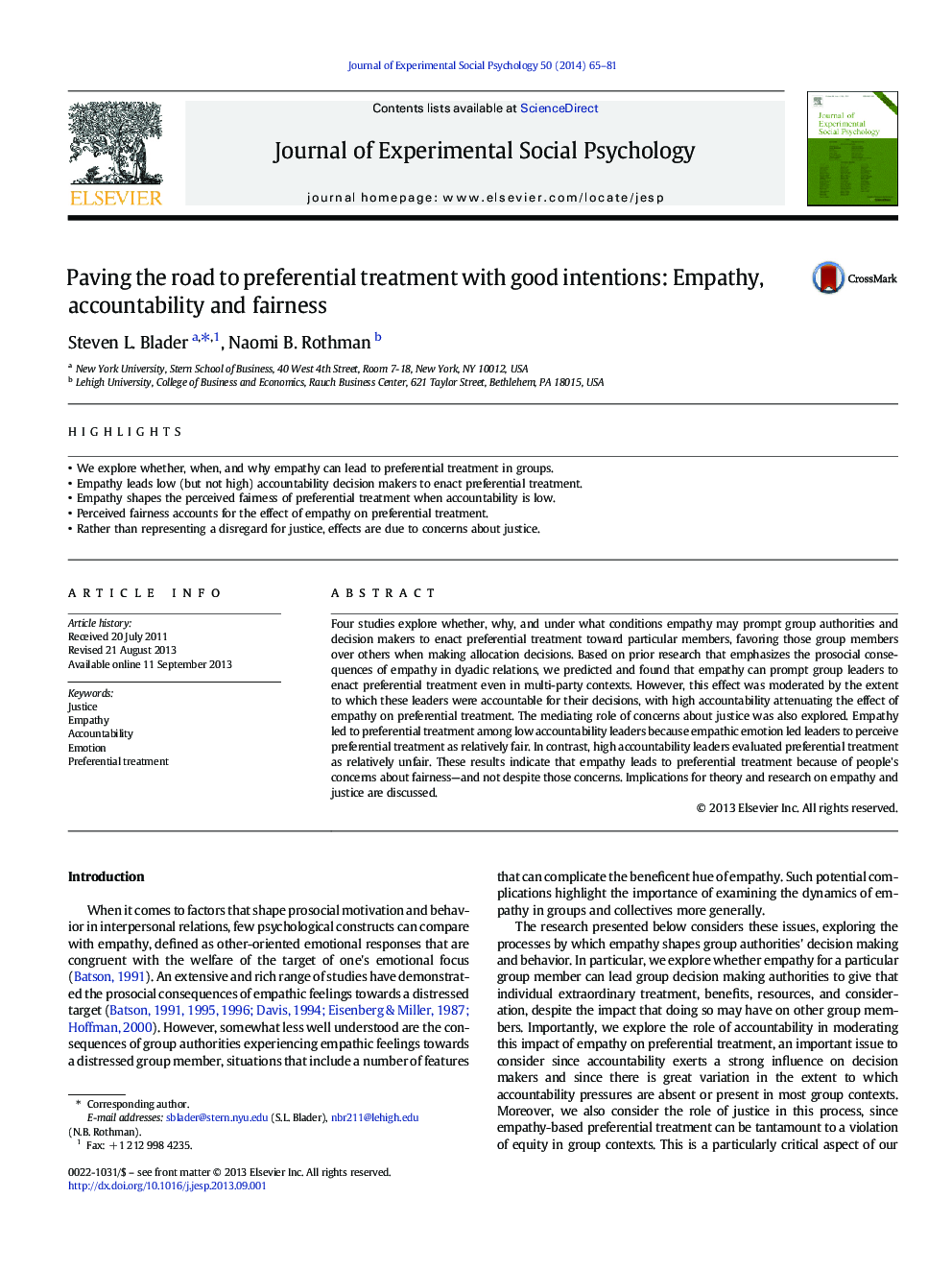| Article ID | Journal | Published Year | Pages | File Type |
|---|---|---|---|---|
| 7324979 | Journal of Experimental Social Psychology | 2014 | 17 Pages |
Abstract
Four studies explore whether, why, and under what conditions empathy may prompt group authorities and decision makers to enact preferential treatment toward particular members, favoring those group members over others when making allocation decisions. Based on prior research that emphasizes the prosocial consequences of empathy in dyadic relations, we predicted and found that empathy can prompt group leaders to enact preferential treatment even in multi-party contexts. However, this effect was moderated by the extent to which these leaders were accountable for their decisions, with high accountability attenuating the effect of empathy on preferential treatment. The mediating role of concerns about justice was also explored. Empathy led to preferential treatment among low accountability leaders because empathic emotion led leaders to perceive preferential treatment as relatively fair. In contrast, high accountability leaders evaluated preferential treatment as relatively unfair. These results indicate that empathy leads to preferential treatment because of people's concerns about fairness-and not despite those concerns. Implications for theory and research on empathy and justice are discussed.
Related Topics
Life Sciences
Neuroscience
Behavioral Neuroscience
Authors
Steven L. Blader, Naomi B. Rothman,
